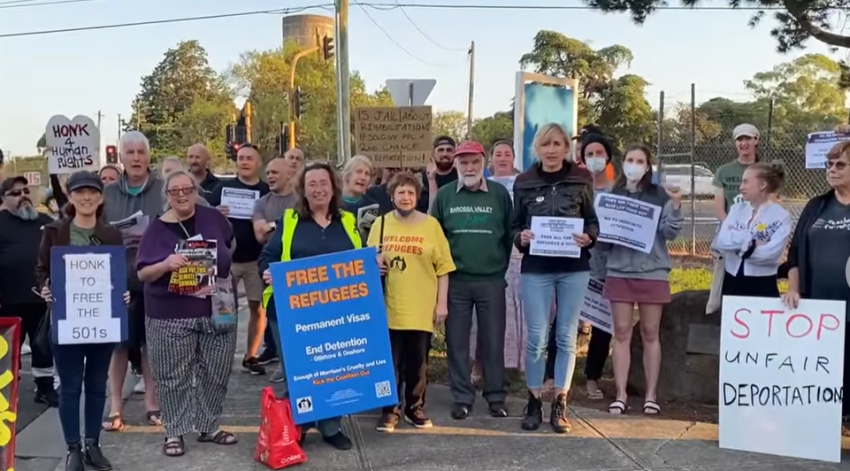
Detainees from Melbourne Immigration Transit Accommodation (MITA) centre in Broadmeadows continue to be forcibly flown to Christmas Island to be detained there.
A few people detained at MITA told Green Left that they are not being given any notice. In the early morning, Serco guards put them in handcuffs and load them into buses, to be transported to an unknown location.
Mandy, who is 25, was dragged naked out of her bed at 6am by four riot gear-clad male Serco officers and transferred to Villawood in Sydney on May 14. An international student, Mandy spent 26 days in prison and one year in MITA. She is now being held indefinitely in Villawood, waiting for deportation.
“No one told me I was going to get moved to Sydney,” she told Joey Tangaloa Taualii, another MITA detainee, in an interview.
“We have been treated in a very bad way. I was very scared and I think something is going to happen to me — like they do with the boys — they will hit you; they will attack you.”
There have been more reports of abuse by guards in the detention centres. On May 20, Whistleblowers, Activists and Communities Alliance reported that an Afghan refugee detained at MITA was attacked “for no apparent reason”. His head, shoulder and legs were injured.
Most of those who are deported go to Christmas Island. Currently, there are around 212 being held there. Since activists tried to stop people from being deported on May 3, the Department of Home Affairs has been a lot quieter about its moves.
Activists want the forced removals and transfers to immediately stop and for all offshore and onshore detention centres to be closed.
Apart from the cruelty involved, indefinite detention causes people to become mentally unwell. “One of the guys here tried to suicide by lighting the whole place on fire,” Taualii told Green Left. “It’s because the authorities won’t address his mental health problems” that have arisen since being detained, he said.
“They took him to the yellow submarine [the prison underneath the courthouse], he stood in front of a magistrate and she ordered him back to MITA. So he is back here, with no mental health treatment.”
There have been a number of suicides and attempted suicides in the last few months at detention centres. A woman killed herself while detained in Villawood on May 22. The Guardian reported that detainees said she had poor mental health. “She has a kitten who she treated like a baby, and the guards came in one day and took the kitten away.” The woman’s visa had been cancelled under Section 501 of the Migration Act.
Another person said: “She was telling us last night ‘I want my story to be heard. I want the people to know what happened to me. I want to tell the people what these detention centres do to the people’.”
An Iranian asylum seeker suicided in March. In April, an Iranian refugee attempted to kill himself, and there were two further suicide attempts by people held in detention in May.
Currently, under Section 501, the immigration minister can refuse or cancel visas on character grounds if someone has “a substantial criminal record” or has been sentenced to imprisonment for a period of 12 months or longer. Many “501s” are detained in immigration facilities for petty offences, such as shoplifting or for unpaid parking fines.
“We are people who have done our time and have lived most of our lives in this country,” Taualii said. “I have children and grandchildren here. We need our freedom.”
Many refugees have been removed from MITA, but Nazir Moradi, a Hazara refugee from Afghanistan is still there. He arrived in Australia in 2012 and is still waiting for a determination about whether he is a refugee or not.